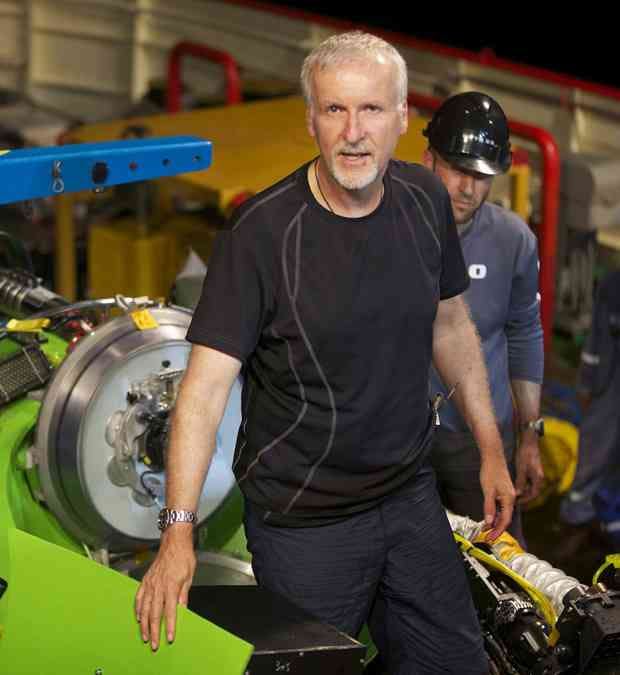Business leaders must dig deep like explorer and filmmaker James Cameron.
He’s known by most of us as an award-winning Canadian filmmaker and Hollywood heavyweight who’s the driving force behind the two highest-grossing big screen blockbusters of all time.
Those who dig (or dive) a little deeper will learn the director of Titanic and Avatar is also a science-minded explorer and innovator whose thirst for knowledge has taken him on numerous research expeditions. In the latest one ,he became the first person to make a solo dive to the deepest place in the world’s oceans aboard a custom-designed submarine he helped develop.
But filmmaker, explorer and inventor aside, James Cameron is first and foremost a visionary leader with tremendous power to inform, influence and inspire those around him.
Learning from passion & relentless curiosity
And, organizations striving to groom and develop leaders in their own executive ranks can learn a great deal by paying attention to the relentless curiousity, innovative thinking and passion Cameron displays while leading the teams involved in his films and expeditions.
Shortly after he resurfaced from his history-making seven mile dive to the bottom of the Mariana Trench in the Western Pacific two months ago, Cameron was interviewed by the expedition’s back-up physician and electronic journalist, Dr. Joe MacInnis, about what enabled him to realize his dream of reaching the earth’s deepest point.
MacInnis, a Canadian researcher, deep-sea explorer and author, studies leadership in lethal environments. He spoke to Cameron as part of his research for an upcoming book, Deep Leadership: Essential Insights from High Risk Environments, which is scheduled to be published in September.
Cameron’s 5 leadership insights
During a lengthy segment of the interview that aired recently on CBC Radio’s IDEAS program, Cameron provided insights into his success and survival during the high-risk mission. Many of these can be adopted by business leaders navigating the dangerous world of corporate sharks, including:
- “Failure equals death.” No one knew this simple equation more clearly than Samurai swordsmen, who had to succeed each and every time their picked up their weapon or it would be their last, Cameron said. This blunt and powerful motivator was also true in his mission. Cameron’s life would have certainly have been lost if any of technology on the submarine he helped custom design had failed during the dive. Corporate boardrooms and domestic and international marketplaces may not strictly be considered lethal environments, but failure in business can quickly add up to business death as well.
- Picture yourself in the vision because one day you will be there. For Cameron, this meant going beyond a theoretical planning exercise when trying to figure out what kind of sub his team would have to build to reach the bottom of the ocean, since none existed to that point. Instead, of focusing on questions of “What if?,” Cameron said imagining himself working the controls of the yet-to-be-designed sub and descending into the depths allowed him to move on to questions, such as “When?” and “How?” Innovators and leaders exploring their own business ideas need to adopt the same practical approach for the day they move their projects off the drawing board and into practice.
- Your market is your best laboratory. Cameron and his team had to use the ocean itself as their lab because there was no pressure chamber large enough to test their new sub. They tested it at increasingly greater depths, fixing new problems as they discovered them. The lesson? Innovations must be tested early at varying thresholds, but always in the real-world environment — something tech giant RIM discovered the hard way when its Playbook was launched with insufficient market testing.
- “Explorers are the Avatars of the human race.” It’s not enough for explorers to strive to reach new worlds and new limits — they must also bring back the tale and the images of what they’ve discovered to inform humankind, said Cameron, who’s artistic talent makes him ideally suited for this facet of exploration. Corporate leaders must adopt the same mindset and think like explorers when investigating new concepts and innovations, documenting what they’ve found for their teams.
- Leadership is a solo dive, but behind you is an entire team. Cameron was the only person crammed into the tight space of the Mermaid Sapphire during its record-setting descent, but he was far from alone. The scientists and engineers who helped Cameron conceive and build the vessel over seven years were there to help operate it and monitor it during the dive. While each member of the team was individual intelligent in their own area of expertise, they achieved “team genius” when they combined forces, Cameron said. Top corporate leaders must be able to motivate their teams and pull each member together to heighten the group’s collective IQ.
The masses will likely continue to measure James Cameron by the number of Academy Awards and box office records his films accumulate — and both accomplishments are certainly worthy of attention and celebration.
But it’s the depth of Cameron’s leadership — based on an explorer’s burning curiousity and indomitable drive — that will have the deepest influence on all of us.
